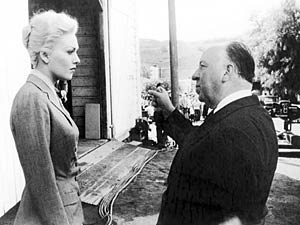Movies
Alfred Hitchcock: Mistaken Identities

The Times Literary Supplement just ran two reviews of recent books about Alfred Hitchcock, the iconic filmmaker whose morbid Catholicism bled into the edges of such classics as Vertigo, I Confess, and Shadow of a Doubt. His movies—popular entertainments in their own time, snubbed by critics and award-givers—have since become the subject of exhaustive theoretical analysis, picked over by feminists, queer theorists, postmodernists, Catholics, and students of film. Paula Cohen, the reviewer, writes:
“He (Hitchcock) was able to make suspense into a metaphor for life and to use the theme of mistaken identity as a source of rich existential meaning. He understood the popular audience, was a master of studio politics and a genius at publicity, and yet he managed to hold to his own vision.”
Hitchcock, like any great artist, attracts commentary that tends to reflect more about the critic than the artist. His deeply felt Catholicism, however, may have contributed to the pervasive themes of sin, temptation, and guilt that recur throughout his filmography. His little seen, underrated movie, I Confess, is a melodramatic suspense story about a priest (played by Montgomery Clift at his brooding best) who hears the confession of a murderer, only later to be accused of the same murder. Hitchcock draws deliberate Christ parallels throughout the film, framing Clift’s embattled priest against crucifixes and statues of Christ, underlining the priest’s intense commitment to his faith. It’s a bit heavy-handed by Hitchcock standards, which only reinforces the earnestness of his message. “Earnest,” however, doesn’t describe the typical tone of a Hitch movie. Whether labeled a Catholic, a sadist, or a Romantic, Hitchcock is certainly the most unabashedly entertaining director ever to be reduced to a “close reading” or a “visual analysis.”








